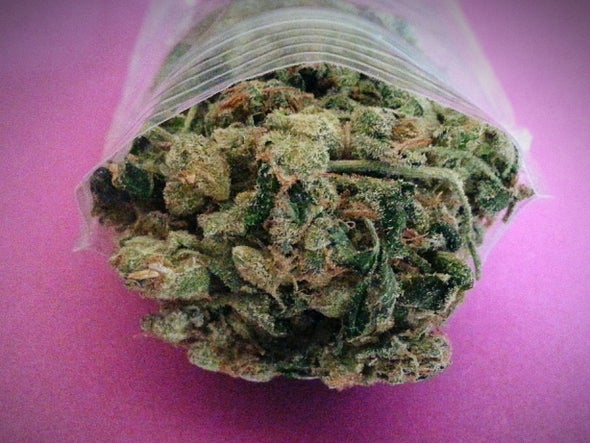There is a lot of misinformation about cannabis and the brain. Some people say that it can kill brain cells, some say it can improve cognitive function. What is the truth? Can weed really make your brain cells die? Or can it actually be good for them? In this article we will explore what science has to tell us about how cannabis affects our brains.
Impaired Neural Connectivity
According to the National Institute on Drug Abuse, some of what scientists do not know is what the differences seen on the MRI images mean and how long the difference last if someone quits using marijuana.
The first thing to know is that cannabis can affect our brain’s connectivity, which means how well different parts of the brain communicate with one another and share information. In an article published in JAMA Psychiatry it was found that heavy marijuana use can lead to a reduction in neural connections between areas of the hippocampus (which controls learning, memory, and mood) and other regions throughout your brain–particularly those involved with reasoning skills. So yes weed does kill my cells but we don’t yet fully understand what this mean for us as people or if these effects actually last after someone stops smoking pot long term . There has been some preliminary evidence suggesting that smoking marijuana can also cause changes in blood flow within.
Largest Effect on Young Brains

Researchers believe that marijuana’s strongest long-term effects occur with young smokers whose brains are still developing neural connections.
-The hippocampus region in your brain can shrink and atrophy with long term cannabis use.
This is because when THC (a psychoactive ingredient of marijuana) binds to receptors in the endocannabinoid system, it prevents new cells from forming and pushes others out. These effects are more pronounced for smokers who start young due their brains still developing neural connections of course this does not mean that smoking weed will change how you think or act as an adult but there may be some residual cognitive problems later on if someone starts using weed before they hit puberty – which I’m sure many people have been tempted to do at least once!
It May Affects Your Mental Health
Not everyone’s experience with marijuana is pleasant. It often can leave you anxious, afraid, or panicked. Using pot may raise your chances for clinical depression or worsen the symptoms of any mental disorders you already have. It can also make you more likely to commit suicide or engage in self-harming behaviors.
It May Affects Your Physical Health: ents new cells from forming and pushes others out. These effects are more pronounced for smokers who start young due to their brains still developing neural connections of course this does not mean that smoking weed will change how you think or act like an adult but there may be some residual cognitive problems later on if someone starts using weed before they hit puberty – which I’m sure many people have been tempted to do at least once! It’s possible that pot could cause adverse health consequences, including cancer, respiratory disease, heart attack, and stroke
Your Lungs May Hurt
Pot smoke can inflame and irritate your lungs. If you use it regularly, you could have the same breathing problems as someone who smokes cigarettes. That could mean ongoing cough with colored mucus. Your lungs may more easily pick up infections. That’s partly because THC seems to weaken some users’ immune systems.
There’s also some evidence that pot can worsen the symptoms for asthma and lead to an increased risk of bronchitis.
This article was originally published on October 20, 2017 with updated information as needed.
The Future: What Weed Does to Your Brain Cells in the Present
Cannabis will change how you think or act like an adult but there may be some residual cognitive problems later on if someone starts using weed before they hit puberty – which I’m sure many people have been tempted to do at least once! It’s possible that pot could cause adverse health consequences, including cancer, respiratory disease, heart attack, and stroke; your lungs may hurt from smoking it regularly.
You May Feel Hungrier
Many people who use weed regularly notice that it boosts their appetite. They call this “the munchies.” Some research suggests that might help people with AIDS, cancer, or other illnesses regain weight. Scientists are studying this and whether it’s safe.
What’s CBD?

It’s short for cannabidiol, a substance found in both marijuana and hemp plants. It doesn’t make you high. CBD can be made into CBD oil and sold as pills, gels, creams, and other formulas. Some people use CBD to treat pain, seizures, and other health problems. But scientists aren’t yet sure how well it works or if it’s safe over the long term. Lack of regulation means you can’t always know exactly what you’re buying.
What can weed do for the brain?
Marijuana contains more than 150 active compounds. The two most well-known are THC and CBD. THC is what makes you high, while CBD doesn’t produce a psychoactive effect but does have other benefits like calming anxiety or relieving pain. Some research suggests that cannabis may be able to help people who suffer from PTSD and Alzheimer’s disease by reducing their symptoms significantly. Scientists are still trying to figure out how it works in our brains, though they believe it might have something to do with connecting neurons together so we can more easily form new memories – which could also mean helping us heal trauma faster after an accident or injury since connections will actually grow back stronger as well! It definitely has some proven benefits, and I’m curious to see more research on cannabis and the brain.